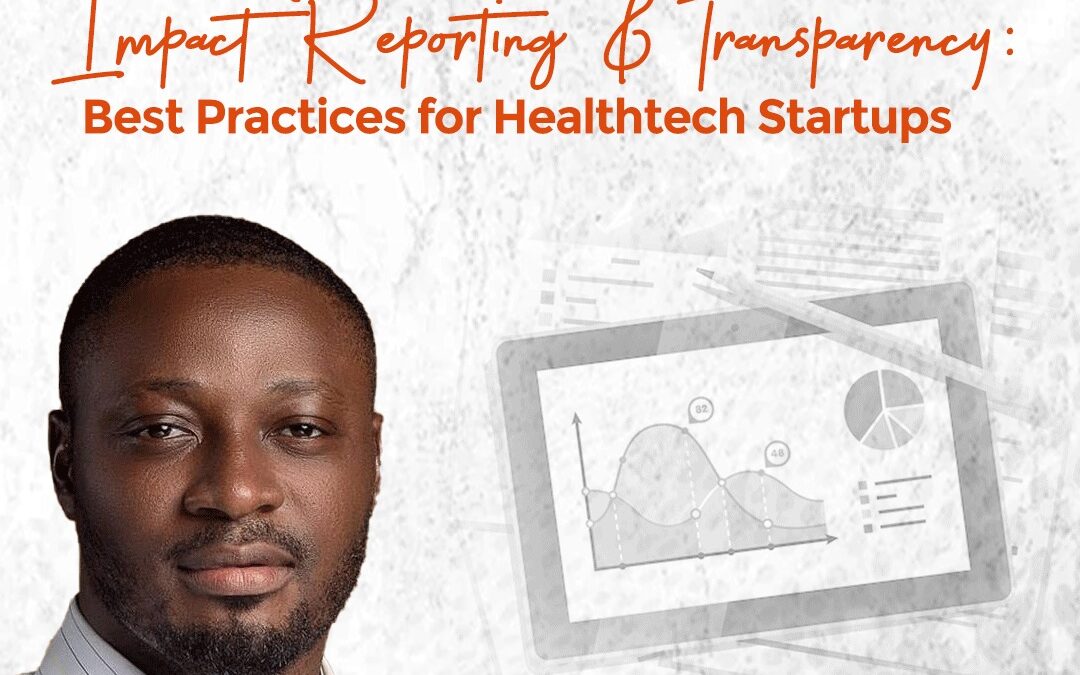In the world of impact funding for healthtech startups, transparency and accountability are paramount. Impact investors and stakeholders are not only looking for financial returns but also seek measurable social and environmental outcomes. To meet these expectations and build trust, healthtech startups must excel in impact reporting and transparency. In this article, we will explore best practices for reporting on impact metrics and maintaining transparency with impact investors and stakeholders.
1. Define Clear Impact Metrics
- Before you can report on your impact, you must define clear and measurable impact metrics. These metrics should align with your startup’s mission and goals.
- Metrics can vary widely depending on your specific healthtech solution. For example, if you’re developing a telemedicine platform, metrics could include the number of patients served, improved healthcare access, or reduced healthcare costs.
- Ensure that your metrics are specific, measurable, achievable, relevant, and time-bound (SMART) to facilitate accurate tracking.
2. Establish a Baseline
- To measure the impact of your healthtech solution accurately, establish a baseline before implementation. This baseline represents the existing conditions or outcomes you aim to improve.
- Document the current state of affairs in terms of healthcare access, patient outcomes, or any other relevant factors. This baseline will serve as a reference point for assessing the impact of your solution.
3. Implement Impact Tracking Systems
- Utilize technology and data analytics to track impact metrics consistently. Modern healthtech solutions often generate valuable data that can be leveraged for impact reporting.
- Implement data collection processes that align with your impact metrics. Ensure data integrity and security to maintain trust with stakeholders.
4. Regularly Monitor and Evaluate
- Continuously monitor and evaluate the impact of your healthtech solution. Regular assessments allow you to identify trends, make necessary adjustments, and demonstrate progress to stakeholders.
- Consider conducting third-party evaluations or audits to validate your impact claims and enhance credibility.
5. Transparent Communication
- Communication is key to transparency. Regularly update impact investors and stakeholders on your progress, both in terms of successes and challenges.
- Be honest about setbacks or areas where you may not have achieved the desired impact. Transparency in acknowledging shortcomings can build trust and open the door for collaborative problem-solving.
6. Use Impact Reports
- Create impact reports that provide a comprehensive overview of your healthtech startup’s impact journey. These reports should include quantitative data, qualitative insights, and compelling stories that illustrate the human side of your impact.
- Share these reports with impact investors, stakeholders, and the public through various channels, such as your website, social media, and email newsletters.
7. Engage Stakeholders Actively
- Encourage feedback and engagement from stakeholders, including patients, healthcare providers, and community members. Their input can help refine your healthtech solution and ensure it meets their needs.
- Involve stakeholders in the impact reporting process, showcasing their perspectives and experiences.
8. Stay Aligned with Your Mission
- Maintain a strong alignment between your startup’s mission and your impact reporting. Demonstrating a steadfast commitment to your social and environmental goals is essential for maintaining trust and credibility.
Conclusion
In the realm of impact funding for healthtech startups, impact reporting and transparency are not just best practices; they are essential for attracting and retaining investors and stakeholders. By defining clear impact metrics, establishing baselines, implementing robust tracking systems, and communicating transparently, healthtech startups can not only measure their impact but also build enduring relationships with those who share their vision for a healthier world. Embracing these practices will not only benefit your startup but also contribute to positive healthcare outcomes on a broader scale.

 We use cookies to ensure that we give you the best experience on our website. If you continue to use this site we will assume that you are happy with it.
We use cookies to ensure that we give you the best experience on our website. If you continue to use this site we will assume that you are happy with it.